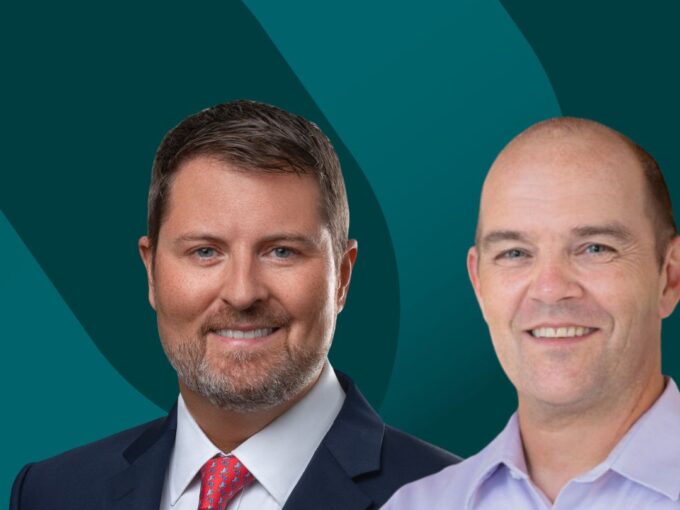What would you do if you became rich overnight? From purchasing luxury assets and travelling the world, to early retirement or philanthropy, most people will have endless answers to this question. But how many would say: “I’d make sure I understand the risks to my wellbeing”?
Sudden Wealth Syndrome (SWS) is a psychological condition that affects individuals who come into large amounts of money unexpectedly. Whether through an inheritance, lottery win, or investing, the sudden influx of wealth can be overwhelming and lead to emotional, psychological, and financial challenges.
Without proper management, newfound wealth can quickly become a source of anxiety, guilt, or reckless behaviour, emphasising the crucial role of a trusted advisor – like a trustee – in guiding individuals through this life-altering transition.
SWS is not just about both financial adjustments and potential emotional turbulence. Those affected often experience feelings of isolation, stress, and uncertainty. While society often views wealth as a solution to problems, wealth can also create difficulties, including:
Decision paralysis
There are many instances where people with significant wealth find themselves unsure about how to manage it. With the volume of options that suddenly open, whether to invest, spend, or save, can lead to an inability to make any decision at all. For people with decision paralysis, seeking advice from specialist service providers will help to alleviate fears of making the wrong decision and transfer the responsibility of a wealth strategy to a professional third-party.
Fear of loss
Warren Buffet – who has a net worth of over $130bn – is a notorious example of someone who is frugal with money, still living in the modest home he purchased in 1958 and dining on McDonald’s cuisine. While Buffet’s spending habits are unlikely motivated by a fear of loss – as he has also taken substantial risks with his wealth – fear can be a factor in a reluctance to spend.
Individuals and families who are unfamiliar with managing significant wealth, may have a deep fear of losing it. To alleviate this fear, they will likely prioritise wealth preservation but may not know where to start in achieving this.
Lifestyle inflation
On the other end of the spectrum to frugality lies excessive spending. There are no shortage of high-profile case studies of lottery winners or professional sportspeople, for example, who amassed and then lost extreme wealth, often in a relatively short space of time.
Another example comes from tech entrepreneurs who suddenly sell their businesses. While many handle the wealth responsibly, others struggle to adjust, feeling overwhelmed by the sudden financial freedom and unprepared to manage the complexities of wealth transfer, philanthropy, or lifestyle changes.
Without proper guidance, individuals may overestimate the sustainability of their wealth, leading to lifestyle inflation and financial instability.
A sensible starting point
Regardless of how it is attained, knowing where to start in protecting and growing wealth can be highly confusing, particularly for individuals without prior knowledge of the wealth industry. Common advice from friends/family of people with an influx of money is often “get a lawyer”. While lawyers have an important role to play, “get a trustee” is, in my view, a more sensible starting point. Trustees will have existing relationships with lawyers across a broad spectrum of service areas and will be able to ensure that clients engage the right lawyers at the right time.
Trustees work in close partnership with lawyers throughout the life of a wealth structure as both have different – yet complimentary – expertise and roles. One fundamental difference between lawyers and trustees in their approach to client service is that a lawyer’s role is to act on behalf of their client’s instructions in the moment, while a trustee’s role is to act in the best interest of all beneficiaries for the long-term.
A trustee is a service provider who will ensure wealth and assets are safeguarded in appropriate wealth structures. Where clients may rely on lawyers to say “yes” to instructions, a trustee must be prepared to say “no” when necessary to ensure wealth is safeguarded in order to deliver long-term outcomes in the best interest of the individual and their family.
Everyone will have different needs when it comes to their personal, financial and business objectives, which will require the involvement of professionals and service providers across a myriad of sectors, including lawyers, investment managers, bankers, custodians, and specialist asset class advisors. Trustees work in partnership with all these providers, while remaining a single point of contact for the ease of clients. A trustee will also undertake all the vetting of these providers, taking the burden away from individuals.
The role of a trustee
Whether wealth has been accumulated suddenly, or inherited through multiple generations, the role of a trustee is to ensure that wealthy individuals, families, and corporate clients are supported in simultaneously safeguarding and enjoying their wealth.
As well as talking on administrative burdens for clients, a trustee also takes on risk and responsibility. A trustee will take legal ownership of a client’s assets which may sound daunting – especially for people who have only recently become wealth owners – however it is essential to ensure all compliance and regulatory requirements are met.
The person who transfers ownership to the trustee (called the “Settlor”) can write a “letter of wishes” to guide trustees. The letter can detail any/all goals the Settlor has for their wealth, how much – or little – they want to involve the next generation of their family in the wealth journey, and how they expect to benefit from their assets.
A trustee can play an essential role in providing solutions to challenges associated with SWS. In the case of decision paralysis, at Saffery Trust we draw on decades of professional experience to identify key objectives. We then build tailored wealth solutions which are designed specifically to support clients in meeting these goals, whether they be financial, business, or personal.
We also connect beneficiaries and clients with our global network of advisors to ensure that they receive the best possible advice to support them across a broad spectrum of specialist areas. This network can play a fundamental role in wealth preservation, particularly in the case of non-standard assets. For example, people who accumulate wealth in digital assets, such as cryptocurrencies, may have concerns over protecting their crypto key – without which they lose all access to their assets. We are able to work with expert custodians specialising in protecting crypto keys with the highest levels of security. Similarly, we work with specialists to ensure art and antiquities are protected and top-tier investment managers to safeguard traditional assets such as stocks and shares.
Succession planning is also a critical consideration of wealth preservation. As trustees, we have a legal duty (our fiduciary duty) to act in the best interests of all current and future beneficiaries to ensure that legacies are created and protected, which requires a forward-thinking approach. This outlook also supports financial sustainability, which may otherwise be jeopardised by the mismanagement of lifestyle inflation.
A trustee’s role extends far beyond wealth structuring; it is our job to pre-empt, and provide support for, the unexpected, positioning us perfectly to provide solutions to the pitfalls and challenges of substantial wealth, however it was acquired.











